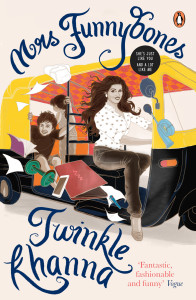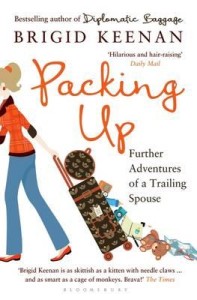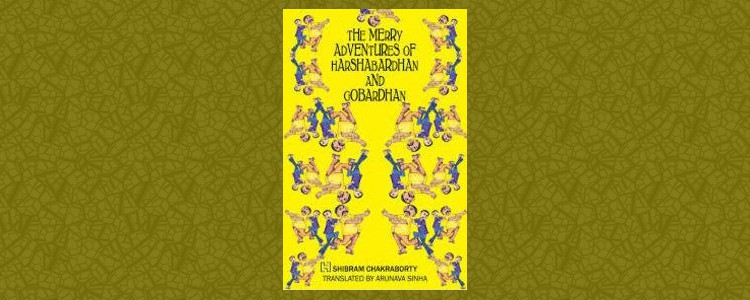Twinkle Khanna and Brigid Keenan
 I have had immense good fortune of reading Twinkle Khanna’s Mrs Funnybones and Brigid Keenan’s Packing Up back-to-back.
I have had immense good fortune of reading Twinkle Khanna’s Mrs Funnybones and Brigid Keenan’s Packing Up back-to-back.
Mrs Funnybones is Twinkle Khanna’s debut as an author. It is based upon her immensely popular and delightfully irreverent column of the same name published in Mumbai newspaper, DNA. It is a sharp, witty and tongue-in-cheek commentary on the many roles a modern woman fulfils — career woman, housekeeper, mother, wife, counsellor, daughter, daughter-in-law, accountant, Man Friday etc. Many would be sceptical that a famous star like Twinkle Khanna is able to write on her own without the assistance of a ghost writer, but there is an authenticity about the book which rings true. I would not term it as “chick lit” but many would view it so. It is hard to put one’s finger on it but reading it from cover-to-cover followed by listening to her at the book launch convince one about Mrs Funnybones being wholly original. Twinkle Khanna had been an actress but is a more accomplished interior designer, voracious reader especially of scifi literature and if her friends at the book launch are to be believed, always known for her wit.
A sample of her writing on her observations on Karva Chauth, an annual ritual in the Hindu calendar when north Indian women fast for the day, ostensibly for seeking better health of their husbands. The day ends with the wife looking at the reflection of the moon through a sieve to secure the lunar deity’s blessings, then she turns to her husband and views his face indirectly in the same manner. This is what Twinkle Khanna has to say:
We Indians are a strange race; we send MOM to Mars, but listen to mom-in-law and look for the moon. One of the better qualities we possess is that most of us will follow traditions and rituals as long as they do not demean or harm us, or cause us to do the same to another, while making our elders happy. We simply do it rather than prove a point as to how liberated and independent we truly are. Perhaps, this is how we harmoniously hold our large families together as we celebrate different aspects of our lives. ( p.101)
Here is a link to the star-studded book launch organised earlier this week in Mumbai. The conversation with Karan Johar, Aamir Khan, etc are worth watching. Apparently her husband, the mega-Bollywood star, Akshay Kumar reads every single word she spins out and is her first editor. In recent times as mentioned in the YouTube link, he has gently advised her to not use the word “Pakistan” on a few occasions.
Brigid Keenan’s Packing Up she suggests falls into the category of “decreplit” or books written by older  women. Packing Up is a hilarious account of her travels as a diplomat’s wife, retirement and grandmotherhood. When she is not mending her tarantula ( seriously! a souvenir collected in Trinidad, after her husband squashed it), Brigid Keenan’s keen eye observes life around her whether it is in Kazakhstan, Azerbaijan, Suffolk, London, Brussels, Jaipur or Sri Lanka. She is one of the co-founders of the Palestinian Festival of Literature. Whatever she does, it is with passion.
women. Packing Up is a hilarious account of her travels as a diplomat’s wife, retirement and grandmotherhood. When she is not mending her tarantula ( seriously! a souvenir collected in Trinidad, after her husband squashed it), Brigid Keenan’s keen eye observes life around her whether it is in Kazakhstan, Azerbaijan, Suffolk, London, Brussels, Jaipur or Sri Lanka. She is one of the co-founders of the Palestinian Festival of Literature. Whatever she does, it is with passion.
With both these women writers it is the frank honesty with which they write, the ability to laugh at themselves and gaily comment on the world around them. The facetiousness with which they seemingly write, garbs the brutal and sharp understanding of reality they have. Mrs Funnybones and Packing Up are excellent examples of using one’s wit with panache.
These books are a must buy.
Twinkle Khanna Mrs Funnybones Penguin Books, Gurgaon, India, 2015. Pb. pp. 240 Rs. 299
Brigid Keenan Packing Up: Further Adventures of a Trailing Spouse Bloomsbury, London, 2014. Pb. pp. 320 Rs 399
21 August 2015


